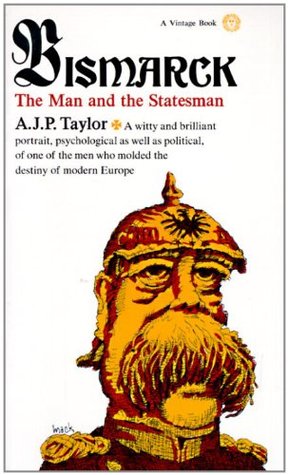Each admired the actor in the other, and characteristically each noted the beauty of the other’s voice. Both had the brooding melancholy of the Romantic movement in its Byronic phase; both had broken into the charmed circle of privilege—Bismarck as a boorish Junker, Disraeli as a Jew; both had a profound contempt for political moralizing.
Welcome back. Just a moment while we sign you in to your Goodreads account.


